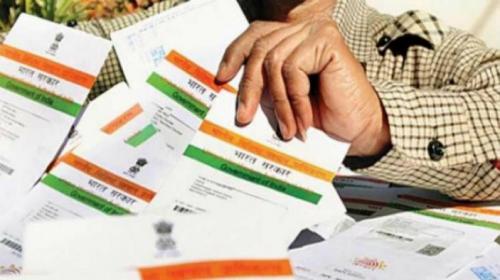Table of Content
The Supreme Court on Wednesday upheld the legality of Aadhaar but certain provisions of the Aadhaar Act have been struck down. A five-judge Bench of the Supreme Court has agreed with the validity of the Aadhaar Act by a 4-1 majority. The report stated that “The architecture of Aadhaar, as well as provisions of the Aadhaar Act, do not tend to create a surveillance state. This is ensured by the manner in which the Aadhaar project operates.”
But the private entities have been denied the access of information through Adhaar. “The portion of Section 57 of Aadhaar Act which enables corporate bodies and individuals to seek authentication is held to be unconstitutional,” said the report. The bench agreed that sharing of data with private bodies can lead to the violation of the privacy of the citizens.
Aadhaar will no longer be mandatory for opening bank accounts, buying mobile phone SIM cards, acquiring school admissions, or common entrance examinations. The Supreme Court also stated that Aadhaar is not a compulsion and anyone who does not intend to receive any subsidy, benefit or services under welfare schemes can choose whether or not to have an Adhaar card. But it is necessary to link your PAN (Permanent Account Number) with Adhaar.
Uniqueness was what made Aadhaar different from any other identity proof, the bench said. "We are of the view that there are sufficient safeguards to protect data collected under Aadhaar scheme."
It also pointed out that “minimal biometric data in the form of iris and fingerprints are collected” during Adhaar enrollment and the UIDAI “does not collect purpose, location or details of the transaction”. Hence the system is secure and there is no such data acquired like personal bank details that can cause any losses to the cardholder.
Justice D Y Chandrachud in his minority judgment said that the access through Aadhaar confronts serious impediment. He added that “The architecture of Aadhaar poses a risk of potential surveillance activities through the Aadhaar database.” As per his observations and judgment, it was possible to trace locations of transactions carried out by an individual over the past five years. The bench, however, has now instructed the UIDAI that the authentication logs should be removed after six months, instead of the five as per the existing regulations.
There have been several diverse viewpoints on the verdict but the majority
Soon after the verdict, Twitter was flooded with Tweets-
Amit Shah- “Congress,
Rahul Gandhi- “For Congress, Aadhaar was an instrument of empowerment. For the BJP, Aadhaar is a tool of oppression and surveillance. Thank you Supreme Court for supporting the Congress vision and protecting.”
Chidambaram- “The majority judgment in the Aadhaar case has retrieved the UPA's original idea of Aadhaar. Aadhaar was meant to be a benign instrument to deliver benefits, subsidies and services to the poor. Glad that the UPA's policy has been vindicated.”.webp)





_1735214375.webp)








